Historical Background
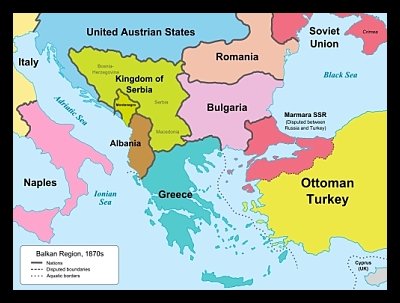
Source
The Balkan Crisis in 1990's started to sprang out with the factors of ethnic tension and nationalism in some sources but this seminar paper will start the study of the death of Josip Broz Tito accordingly it led to deep political and economic crisis and the disintegration of Yugoslavialong before. Yugoslavia's government struggled unsuccessfully to cope with a plunging economy and the re-emergence of local nationalism. The 165-member Central Committee of the Yugoslav Communist Party held an emergency session in October 1988 but could not find a solution to the problem. Two months later, the entire Yugoslavian cabinet resigned. In January 1989, the Communist Party voted to give up its power monopoly. Yugoslavia's breakup began in May 1991, when Croatia and Slovenia declared their independence from the Serbian-dominated central government in Belgrade.[1] Serbia wanted the Bosnia-Herzegovina redraw territorial boundaries; the Muslim president did not approve the offer instead held a referendumdeclaring their independence. On March 3, 1992 Bosnia-Herzegovina was independent. There was a rebellion among the Bosnian Serbs and an armed struggle broke out determining who were the ethnic tribes will control the country. Bosnian President Alija Izetbegovic wanted to turn Bosnia into a fundamentalist Islamic nation. Bosnia-Herzegovina was composed of 40 percent Muslims, 30 percent Serbs and 18 percent Croats. Although Bosnia's Muslims were in the majority with 2 million people, Bosnia's Serbian minority was better armed, receiving support from the neighboring Serbian army. Serbian militias, backed by the Serbian armed forces, took control of two-thirds of Bosnia. Afterward, the Bosnian Serbs launched a reign of terror against country's Muslim population.[2] Enforcing a policy of "ethnic cleansing," Bosnian Serbs set out to "purify" Bosnia by expelling Bosnian Muslims from the country. Bosnian Serb forces drove Muslims from their homes, subjecting them to mass rape, confinement in concentration camps and genocide.
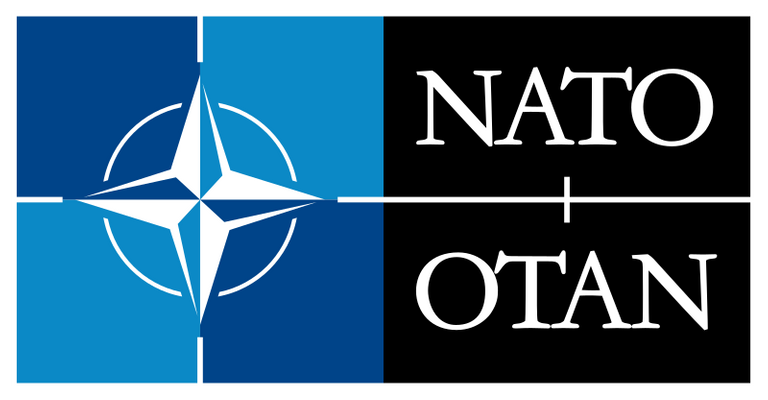
Source
International Community Intervenes. A NATO ultimatum brought about a cease-fire and the withdrawal of Serbian artillery in 1994. After a prolonged period of indecision, the world community took action to restore Bosnia's integrity. Peace negotiations held at Wright-Patterson Air Force Base in Dayton, Ohio, in late 1995 included presidents Milosevic, Izetbegovic and Franjo Tudjman of Croatia. The three agreed on a government structure for Bosnia a six-member council consisting of two Muslims, two Serbs and two Croats, headed by two co-chairmen to function as prime ministers. Government ministries would also be divided among Serbs, Croats and Muslims. In March 1996, the government of Bosnia and Herzegovina was given back control of the suburbs surrounding Sarajevo. Under the peace treaty, the capital area was to be in the hands of the Muslim-dominated government. The United Nations International War Crimes Tribunal met the same month in The Hague, questioning Serbian soldiers about war crimes and issuing arrest warrants for Bosnian Serb officers. Serbians have refused to hand over officers charged with war crimes, instead regarding them as heroes. The first national post-war elections were held in Bosnia in September 1996 under the supervision of NATO troops. Bosnia's multi-ethnic parliament met for the first time in January 1997 and appointed a cabinet.
Significance of the Study
This study shows and interprets the knowledge of the national relationship of the European powers with its European issues or problems, this shall provide the response of the crisis and how it was pacify. This also proves the weakening powers of the superpowers that History will explain and deals with the meaning of importance to impart the experience of its context to the readers. Through the significance of the Theory of Change it able to expand the betterment of understanding of the crisis.
Scope and Delimitation
This research focuses on the Balkan Crisis in 1990's from the death of Marshal Josip Broz Tito to the response of each Powers, and how the European powers such as Italy, France, Germany and Britain responded to the crisis which shows their weakened power to its prestige in the Continent of Europe. However, this paper will prove by its information provided and supporting research and of course its theory.
Supporting Theory
Theory of Change is a specific type of methodology for planning, participation, and evaluation that is used in the philanthropy. Theory of Change explains the process of change by outlining causal linkages in an initiative, its shorter-term, intermediate, and longer-term outcomes. The innovation of Theory of Change lies, first in making the distinction between desired and actual outcomes, and in requiring stakeholders to model their desired outcomes before they decide on forms of intervention to achieve those outcomes. A common error in describing Theory of Change is the belief that it is simply a methodology for planning and evaluation. Theory of Change is instead a form of critical theory that ensures a transparent distribution of power dynamics. Further, the process is necessarily inclusive of many perspectives and participants in achieving solutions.[3]
Research Methodology
The method of research is to take time in understanding the thesis statement and its possible flaws, requisitions and doubt. This also includes formulating questions to justify the thought of the paper in defending it, gathering data from different sources from primary, secondary, videos, maps and pictures with its theory of change.
Body
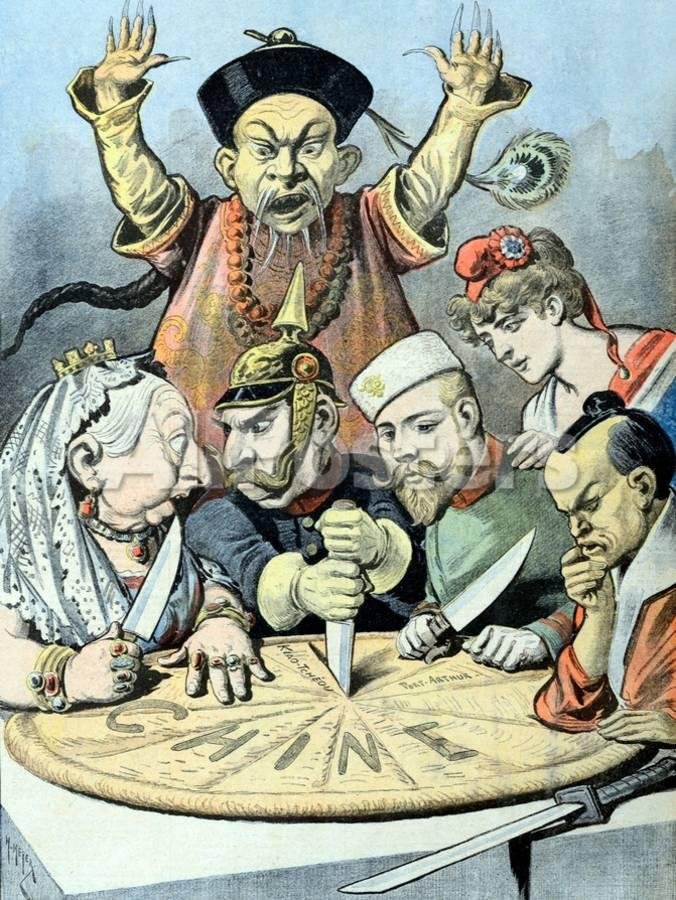
Source
European Powers Qualifications: Italy, France, Germany and Britain
As European superpowers you should have Ecoconomy, Political, Social, Health, and Military. All of these were stable, developed and improved.
Accordingly European Union is emerging as superpowers it is not as military impact but more on economic and political influence. John McCormick believes that the EU has already achieved superpower status, based on the size and global reach of its economy and on its global political influence. He argues that the nature of power has changed since the Cold War-driven definition of superpower was developed, and that military power is no longer essential to great power; he argues that control of the means of production is more important than control of the means of destruction, and contrasts the threatening hard power of the United States with the opportunities offered by the soft power wielded by the European Union. Andrew Reding also takes the future EU enlargement into account. An eventual future accession of the rest of Europe, the whole of Russia, and Turkey, would not only boost the economy, but it would also increase the EU's population to about 800 million, which he considers almost equal to that of India or China. The EU is qualitatively different from India and China since it is enormously more prosperous and technologically advanced. Turkish PM Recep Tayyip Erdoğan said in 2005: "In 10 or 15 years, the EU will be a place where civilizations meet. It will be a superpower with the inclusion of Turkey.Robert J. Guttman wrote in 2001 that the very definition of the term superpower has changed and in the 21st century, it does not only refer to states with military power, but also to groups such as the European Union, with strong market economics, young, highly educated workers savvy in high technology, and a global vision.[4]
European Powers Response
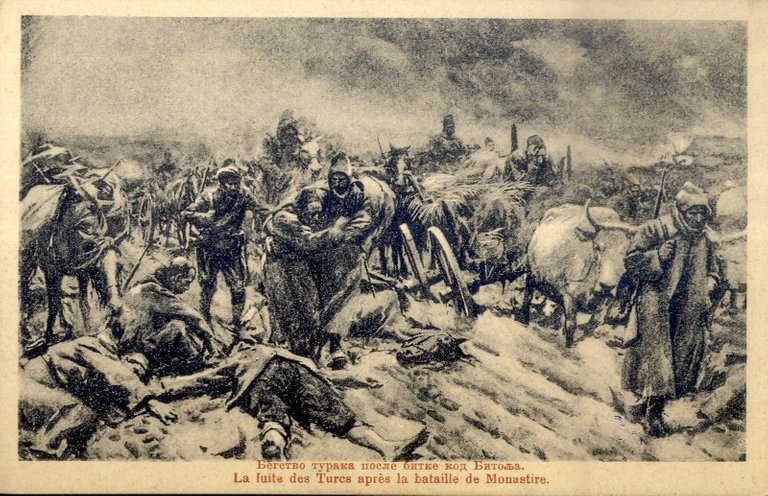
Source
Italy
Since the early 1990s Italy has been engaged in promoting peace and stability in the Balkans with a growing amount of political, economic and military resources. At the beginning of the process of Yugoslav dissolution, the Italian polity was torn apart by a set of political and financial scandals that prevented the development of an assertive foreign policy. As in the 1990s, today’s scandals illustrate that economic reform is paralyzed in Italy by a web of mutually reinforcing interests that stretches across politics, publicly owned companies, banks, the media and all tiers of state administration. At a minimum it is necessary to eliminate unnecessary tiers of government, reduce the number of professional politicians and cut the link between political parties and state-owned enterprises. If Sunday’s election produces a prime minister who successfully delivers these reforms, he or she deserves to be more famous than the next pope.[5] Italian President Carlo Azeglio Ciampi came to address the North Atlantic Council on 5 May. Seeing the Atlantic Alliance of the year 2000 as a bridge between past and future, he paid tribute to it for having preserved for 50 years the fundamental, values of freedom and democracy, and expressed Italy’s appreciation for the effective way in which the Atlantic Alliance has adapted and transformed itself, consolidating the cohesion among its members. The NATO response in the Balkans and Italy as a conscience to push the operation. The operation of Alba was a multinational peacekeeping force sent to Albania in 1997. Led by Italy, it was intended to help the Albanian government restore law and order in their troubled country after the 1997 rebellion in Albania. Military Support in Kosovo and the view of Italy to Balkans that it is not there future to be chaotic but the Balkans is exactly the opposite of easy optimism. They teach us that everything ends, everything breaks and everything disintegrates.
Germany
By the time of 1990’s Germany experience unemployment crisis it is caused by rigid labor markets, low profitability and increasing international competition.
Divisions among the allies over using ground troops in Kosovo burst into the open today when Germany's Chancellor came to NATO and declared that his country would block the alliance from fighting a land war.
''This is first and foremost a German position,'' said the Chancellor, Gerhard Schroder. ''That position is also the present position of NATO, and the strategy of an alliance can only be changed if all the parties involved agree on it. I am against any change of NATO strategy.''
Germany has long opposed sending its own troops into combat in Kosovo. But the threat from Mr. Schroder to veto any ground force without a settlement is new, and he is seeking to put more weight behind his words by emphasizing that he is also speaking as chairman of the European Union.
NATO diplomats whom Mr. Schroder addressed in a closed meeting before the news conference said the Chancellor stressed the same theme of maintaining the air attacks and diplomatic campaigns, but made his points in more muted tones.
American diplomats here said Mr. Schroder's remarks were directed primarily at his domestic audience. Thus it is unclear whether Germany will carry out its threat to block a NATO force if the alternative is outright failure.
Public opinion in favor of the air war has been slipping in Germany at the same time that pacific strains in German politics are resurgent.
But the alliance has staked out a tough set of conditions for Mr. Milosevic to meet before the air war ends, leaving NATO with little negotiating room. One condition, for example, is that Mr. Milosevic must withdraw his 40,000 troops from Kosovo before the allies halt the bombing.
Mr. Schroder said today, however, that Germany would support a compromise between that position and the Italian plan to suspend bombing for 48 hours after a Security Council resolution was approved.
The allies may also have to sacrifice a possible indictment of Mr. Milosevic for war crimes to negotiate a deal that insures the refugees' return before winter.
France
In recent years by the time of 1990’s France political experience series of catastrophe accordingly, during the 1980s France’s two main political parties, the Socialists and the Gaullist RPR, adopted the neo-liberal policy model pioneered in Britain and the US. But resistance proved hard to break down. University students, nurses, and railway and bank workers fought back in the late 1980s, as did school students and Air France and France Telecom workers in the early 1990s. There is no direct response to the Balkan Crisis by France but military troops for contribution was collaborated to the peace making operations. The Stabilization Force in Bosnia and Herzegovina (SFOR) was a NATO-led multinational peacekeeping force deployed to Bosnia and Herzegovina after the Bosnian war. Although SFOR was led by NATO, several non-NATO countries contributed troops. In addition, France has also participated in NATO crisis management operations since their beginnings in 1993, contributing to operations in Bosnia from 1993 to 1994 under IFOR and then SFOR, as well as to the NATO air campaign in 1999 aimed at putting an end to atrocities against civilians in Kosovo. France committed forces in Afghanistan from 2001 and provided a considerable contribution to the International Security Assistance Force (ISAF), which was placed under NATO command from 2003. In 2012, it withdrew its fighting forces and since then has provided only training and support personnel under ISAF. In Libya, as part of Operation Unified Protector in 2011, France was one of the most active Allies in the Alliance’s efforts to protect Libyan civilians . [6]
Britain
Britain's economy contracted by 0.5 per cent in the third quarter of the year, bringing to an end the longest period of unbroken economic growth in UK history. The fall was more than twice as much as expected and prompted experts across the City to warn that the UK is now almost certainly heading for a 1990s-style recession, with soaring unemployment, widespread negative equity, falling house prices and slumping profits.
The recession may last for double the length of that slowdown, they added, since Britain was, in effect, facing "three recessions in one". Prime Minister Gordon Brown, speaking at his home in Fife, said: "This is a global financial recession and we're fighting it every way we know how, working with other countries, trying to get the banks moving here in Britain, trying to help people with mortgages, at the same time increasing the winter allowance for pensioners, the tax cut of £120 going to basic rate taxpayers." We're fighting this recession but we need other countries to work with us,"
The response of the British was more on sending military troops and peacemaking sanctions. After European Union monitoring had failed to halt the progression of the conflict, the UN intervened, first through the implementation of multilateral sanctions, and then through the authorization of a number of peacekeeping operations. The UN Protection Force (UNPROFOR) that was in Croatia and Bosnia between 1992 and 1995 was granted extended authority to deliver humanitarian assistance and provide protection for so-called 'safe areas'. NATO air forces (which included UK personnel) were also mandated to provide support for the delivery of the peacekeepers' mandate on the ground. However, the weakness of the UN mandate was highlighted following the Srebrenica massacre of 1995, where UN peacekeepers were left helpless under the limited terms of their mandate to halt the unfolding slaughter of Muslims. Exhausted by economic sanctions and under the threat of further action from NATO, the combatants agreed to bring the war to an end under the Dayton Peace Accords of 1995. [7]
Conclusion
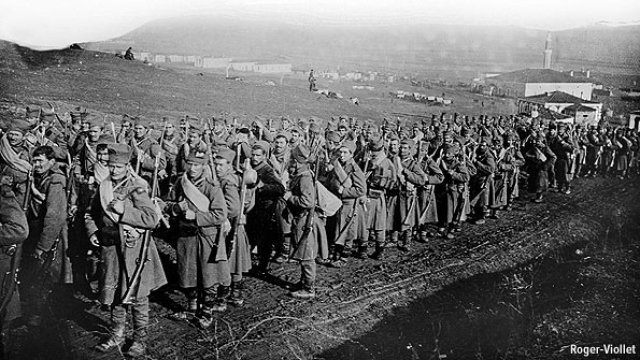
Source
The struggle of the Balkan Crisis in 1990’s had a great impact as a European issue and how it was responded by the said European Powers, each of these European powers had its own problems which contributed to their weakening powers during this time and as how they responded to the crisis itself, it was a manifestation that only NATO as their alliance had participated extensively they only send military troops to pacify the conflict as a help to the organization. With the Theory of Change that focuses of its meaning that participation and evaluation for a short term, these European powers participated through its specific response which is only sending troops as a compliance of the national organization and to assess its response which is this paper was trying to prove. It can evaluate that there is no direct response of these European Powers which shows their weakened power in the continent.
[1] (n.d.). Retrieved April 11, 2017, from http://edition.cnn.com/SPECIALS/1997/bosnia/history/
2 (n.d.). Retrieved April 11, 2017, from http://edition.cnn.com/SPECIALS/1997/bosnia/history/
[3]Theory of change. (2017, February 22). Retrieved April 11, 2017, from https://en.wikipedia.org/wiki/Theory_of_change
[4]European Union as an emerging superpower. (2017, March 29). Retrieved April 12, 2017, from https://en.wikipedia.org/wiki/European_Union_as_an_emerging_superpower
[5] Financial Times. (n.d.). Retrieved April 12, 2017, from https://www.ft.com/content/0608616c-7b65-11e2-8eb3-00144feabdc0
[6]Home. (n.d.). Retrieved April 12, 2017, from http://www.diplomatie.gouv.fr/en/french-foreign-policy/defence-security/france-and-nato/
[7]Editor, E. C. (2008, October 24). Financial crisis: Recession to be 'worse than the 1990s', experts warn. Retrieved April 12, 2017, from http://www.telegraph.co.uk/finance/financialcrisis/3255077/Financial-crisis-Recession-to-be-worse-than-the-1990s-experts-warn.html
Posted from my blog with SteemPress : http://zam398.vornix.blog/2018/10/19/historical-essay-the-balkan-crisis-in-1990s/